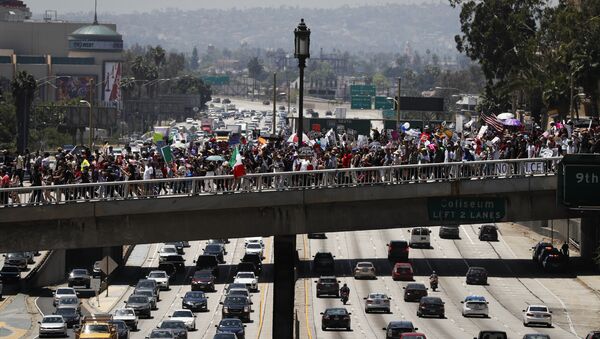"So, for the 21st century, let's lift our ambition again. I believe that in this century, we can win a four-day working week," Frances O'Grady, general secretary of the Trades Union Congress, said Monday, according to the Guardian.
"It's time to share the wealth from new technology, not allow those at the top to grab it for themselves," O'Grady said at TUC's 150th annual summit.
The labor movement in the US won a massive victory in 1867, when the US state of Illinois' legislature passed legislation requiring an eight-hour work day, motivating union leaders in other areas to push for the same. But some 150 years later, workers have yet to achieve comparable concessions from employers — like a four-day work week and three-day weekend.
Lightening the workload a bit could lead to public health improvements and, by extension, workers who are able to perform better at their jobs. "People who log long hours are about 12 percent more likely to become heavy drinkers," Harvard Business Review reported in 2015.
A company in New Zealand tested a four-day, 32-hour work week while paying employees for a five-day, 40-hour week, which resulted in such dramatically positive effects on workers' energy levels and motivation that the firm, Perpetual Guardian, said it was hoping to make the four-day week a permanent reality for its staff, according to the New York Times.
Amazon, the second US company to reach a $1 trillion valuation by market capitalization, recently bragged that employees at its fulfillment centers can go to the toilet at any time. Brutal descriptions of the work atmosphere at Amazon say the company has gone so far as to pay drivers less than minimum wage, an investigative reporter told Sputnik. "If the driver does not get enough shifts, at the end of the week they up owing Amazon money to work for them," reporter Alan Selby found. Amazon staff have complained that toilet breaks are subject to supervised monitoring and that staff can't go unless the time they need to use the toilet falls within predetermined break times.
"Jeff Bezos owns Amazon… He's racking up the billions while his workers are collapsing on the job exhausted. We need strong union with the right to go into every workplace, starting with Amazon's warehouses here in the UK," O'Grady said.
According to a report from the Trades Union Congress, after World War II, economists predicted employees would work 15 hours per week by now, while most people would favor a four-day work week. But the opposite is happening: "for some, the on-demand economy has meant packaging work into ever-smaller pieces of time. This is a return to the days of piece-work, creating a culture where workers are required to be constantly available to work," the trades union leader said.




